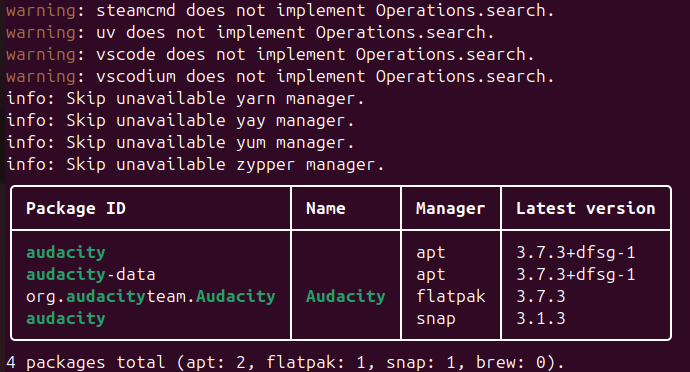Could you link some of those other options? I tried searching for something similar and found nothing. I know about LURE which got abandoned and didn't have the same goal.
Android works much better, no doubt in that regard, but I think the chance of this script breaking your system is very low. The vast majority of the apps are flatpaks, then snaps, tarballs, AppImages, and only then a few .debs. I try to avoid them because even if you are on Debian/Ubuntu after a few years your version will stop being supported, whereas snaps will continue to work for 10 years.
I like to get software directly from the developers, and this just makes it easier. I don't want to compile anything, and I don't mind any of the package formats. I just don't like that every app uses a different one so it's a pain in the ass to install them.
Whether you trust the list not to execute malicious commands is up to you.
view more: next ›





I did check it out and it's really cool, but here's the big difference
I want to install audacity and it ran all of the commands for search via the package managers. My script will do this:
Check the database and finds an entry I made, because as it turns out, the only official audacity package is an AppImage built for Ubuntu 22.04. So it launches a command that retrieves the latest AppImage even if I don't update the database as it tries to fetch the latest version number and download the appimage based on that.
Ignore the .1, this is from a VM I test the app on and it's a mess
TLDR: mpm runs search commands for all package manager, my script's database was created manually. This means a lot of apps will be missing but when I come across something that's not there, I add it. Whether this approach is a good idea in the long run, I don't know. I just felt like creating a proof of concept of the idea.